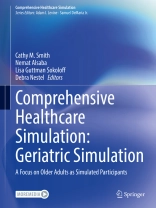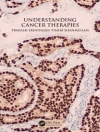This practical guide brings together approaches designed for simulation-based education for the care of older adults. It fills a gap in the training for the care of older adults that working with Simulated Participants (SPs) can help to address. The book provides elements of best practice related to simulation methodology are synthesized with relevant clinical evidence related to caring for older adults.
This book will be an invaluable practical resource for educators, academics, and other health care providers with diverse levels of experience who work in health professions education and simulation training related to care of older adults. It offers support (guidance) to all health professions globally and is particularly pertinent to interprofessional practice. Users will gain the essential ingredients to confidently implement a safe and effective geriatric simulation program with older adult SPs.
Tabella dei contenuti
PART 1 – INTRODUCTION.- A focus on older adults as simulated participants.- Describing the work of older adult simulated participants.- PART 2 – ELEMENTS.- A systematic approach to designing scenarios involving older adult simulated participants.- Training older adult simulated participants for role portrayal.- Fostering psychological safety in learning conversations.- Supporting older adult simulated participants to provide feedback to learners.- Program evaluation and quality improvement approaches in older adult simulated participant methodology.- Research opportunities and knowledge translation: saying “Yes” to simulation research for the care of older adults.- PART 3 – IMPLEMENTATION.- Building or enhancing a simulated participant program with and for older adults.- Working with volunteer older adult simulated participants.- Embedding simulation for the care of older adults into programs.- Faculty reflections – supporting older simulated participants in giving feedback.- Innovations in older adult simulated participant methodology.- Creative development opportunities for older adult simulated participants.- PART 4 – APPLICATIONS – Older Adult Care and Assessment.- Assessing physical function in older adults: Target Learner Group: Second year medical students.- Assessing falls risk in older adults: Target Learner Group: Medical students completing geriatric training in internal medicine clerkship.- Sexual history: The importance of social history in guiding care of older adults: Target Learner Group: First year medical students.- Falls assessment, prevention, and management with older adults Target Learner Group: Physiotherapists.-. Supporting personal care for older adults living with dementia: Target Learner Group: Healthcare providers working with older adults-. Assessing and supporting management of an older adult’s swallowing post-surgery: Target Learner Group: Speech-language pathology students-. Collaborating to promote the safety of older adults in the community Target Learner Group: Police and Emergency Services-. Assessing and supporting management of an older adult’s aphasia post-stroke: a sequential simulation: Target Learner Group: Undergraduate and post baccalaureate speech-language pathology students-. PART 5 – APPLICATIONS – Older Adult Care in an Acute setting: Trauma in an older adult: small accidents, big injuries: Target Learner Group: Emergency department team-. Older adult falls in the emergency department: Keeping everyone safe: Target Learner Group: Emergency department and other hospital teams-. Recognizing and responding to sepsis and delirium in an older adult living in a care facility: Target Learner Group: Emergency medicine trainees-. Recognizing and managing abuse and mistreatment of older adults Target Learner Group: Emergency department team-. Toxicology emergencies in older adults: slow is smooth, smooth is fast: Target Learner Group: Pre-hospital physicians, paramedics, Emergency department and other hospital teams-. Providing end-of-life care for an older adult in the emergency department: Target Learner Group: Emergency medicine trainees and doctors-. PART 6 – APPLICATIONS – Older Adult Care: Advanced Conversations-. Conversations about driving retirement with an older adult: Target Learner Group: Fourth year medical students-. Goals of care discussions at end-of-life with families and caregivers of older adults: Target Learner Group: Family physicians-. Social determinants of health: diabetes management in older adults: Target Learner Group: Pre-licensure baccalaureate nursing students-. Counselling family members about an older adult’s test results and treatment plan: Target Learner Group: Master’s level speech-language pathology students-. An older adult with a malignant melanoma: a sequential simulation Target Learner Group: Plastic and reconstructive surgery trainees-. Telehealth opportunities and challenges: recognizing abuse of an older adult during a telehealth consultation: Target Learner Group: Third year medical students-. PART 7- Future Directions and Possibilities-. Looking to the future of older adults as simulated participants.
Circa l’autore
Cathy M Smith, Ph D
Baycrest
Toronto, Canada
Nemat Alsaba, MBBS
Bond University
Australia
Lisa Guttman Sokoloff, MS
Baycrest
Toronto, Canada
Debra Nestel, Ph D
Monash University
Melbourne, Australia












